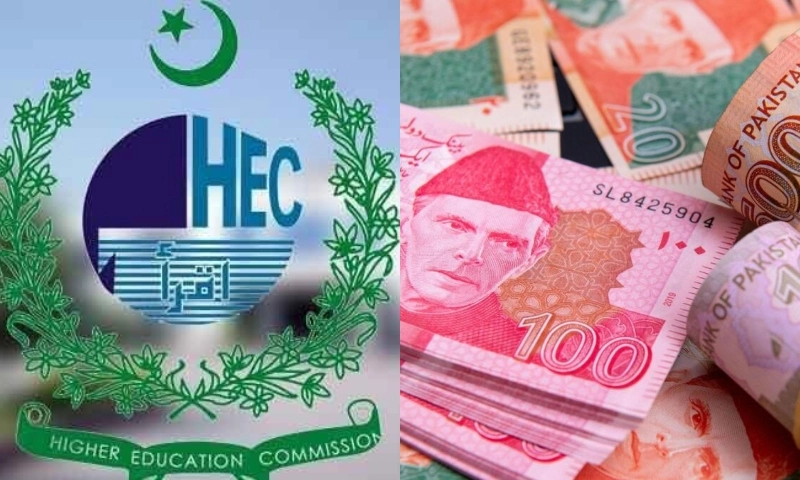- Web Desk
- Feb 19, 2026
Stagnant HEC budget triggers financial crisis in higher education sector
-

- Web Desk
- May 02, 2025

ISLAMABAD: The annual budget of the Higher Education Commission (HEC) has remained stagnant for the past six years, plunging the country’s higher education sector into a severe financial crisis.
According to documents available with HUM News English, the government has not increased the HEC’s annual allocation, which has remained unchanged at Rs65 billion since the fiscal year 2017-18.
The documents revealed that the HEC had submitted a consolidated demand of Rs125 billion for the financial year 2024-25 through the Ministry of Federal Education, but the government approved only Rs65 billion — the same amount it has allocated since 2017-18.
The HEC, through a joint budgetary assessment committee comprising representatives from the HEC, the Ministry of Finance, and provincial HECs, assessed the annual recurring financial requirements of universities. After deliberations, the committee recommended a demand of Rs125 billion to the federal government.
Additionally, provincial governments — particularly Punjab and Khyber Pakhtunkhwa — have sought consistent and sufficient recurring budgetary support for their respective public sector universities, whose funding remains critically low or irregular.
Besides the provincially chartered universities, three federally chartered institutions are currently facing a severe financial crunch, making it difficult to pay salaries and pensions. These include Quaid-i-Azam University (QAU), the International Islamic University Islamabad (IIUI), and the Federal Urdu University of Arts, Sciences and Technology.
A request for a supplementary grant of Rs2.5 billion was forwarded to the federal government to address these issues, but no funds have yet been released.
Following the 18th Constitutional Amendment, providing funds to provincially chartered universities became the responsibility of provincial governments. However, except for Sindh, other provinces have failed to provide the required funding, placing an additional burden on the HEC and affecting federally chartered universities.
HEC Chairman Dr Mukhtar Ahmed noted that financial constraints have led to a decrease in the recurring grant per student — from Rs67,528 in 2018-19 to Rs50,956 in 2023-24.
A few weeks ago, the parliamentary standing committee also discussed the financial crisis in higher education. The committee stressed the need to raise the sector’s budgetary allocation to at least four per cent of the GDP in the fiscal year 2025-26.
Despite the ongoing crisis, the HEC has disbursed over Rs400 billion to public sector universities across the country since 2017. These funds were distributed among 156 public sector universities and degree-awarding institutes (DAIs) nationwide.
Also read: HEC revamps chemistry curricula to meet modern industry needs
Over the past five years, the government provided Rs301.431 billion as a federal grant and Rs113.12 billion under the Public Sector Development Programme (PSDP).
The HEC generally follows two modes of funding: recurring and development. The development budget supports specific projects such as infrastructure and faculty development, upgrading laboratories and equipment, improving ICT infrastructure, procurement of transport, and promotion of extracurricular activities.
In the current financial year, the government has released Rs61 billion to the HEC for 159 projects.




